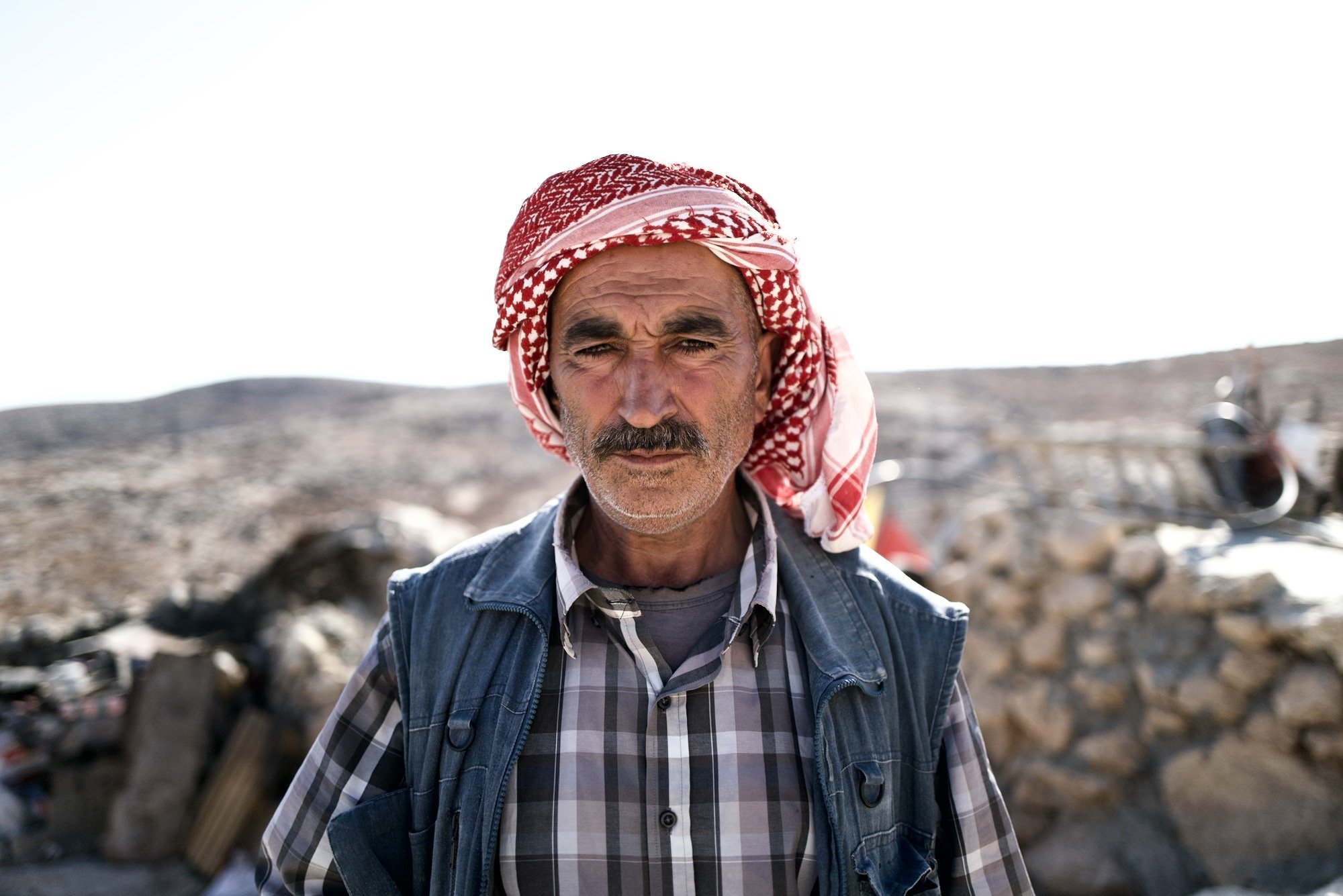Standing Tall
At risk of forcible displacement…disappearance…Is it a one-settler phenomenon?
For decades, settler violence against the Palestinian herding community has been a feature of their everyday life. In the last few years, with the emergence of what a Palestinian herder described as a “copy and paste” phenomenon where a settler would adopt a Palestinian shepherding lifestyle, set up an agricultural outpost, and start behaving as the lord of the land, Palestinians report an escalation in violence not experienced before. Violence that targets primarily their livelihoods but does not spare their personal safety and homes either. Violence that is keeping them alert day and night. In a constant state of fear, anxiety, and uncertainty towards what’s going to happen, when and how bad the next attack would be. Violence that is putting their herding lifestyle at a serious risk of disappearing.
Encouraged by impunity, lack of accountability and law enforcement, as well as support of the Israeli army, settler violence is rendering swathes of grazing land and natural water resources off-limit to Palestinian herders. Violence that includes access restriction, swarming, intimidation, unleashing dogs, beating, stoning, even live ammunitions sometimes, setting crops and property ablaze, vandalising trees, and fabricating lies.
This, along with droughts are having a devastating impact. Their sheep and goats are kept mostly in pens. Water is trucked and fodder is bought. One cubic metre of water costs about NIS 30 (about US$ 10), and one ton of fodder about NIS 1,400 (about US$ 450). Unable to afford the hefty prices, Palestinian shepherds have no choice but sell some of the livestock to pay for the cost and to provide for their families.
A November 2021 report by B'Tselem, Israeli Human Rights Centre, argues “Settler violence against Palestinians serves as a major informal tool at the hands of the state to take over more and most West Bank land. The state fully supports and assists these acts of violence, and its agents sometimes participate in them directly.” Support to outposts, it argues, includes army protection, provision of infrastructure, and financial subsidies.









































